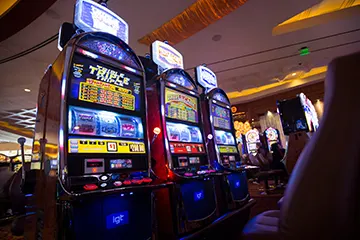 Pennsylvania loses an estimated $250 million in revenue that skill games could generate if taxed and regulated, a state panel heard on Wednesday. Skill games have proliferated throughout the state, but the head of the gambling watchdog has raised concerns about crime, addiction, and underage gambling due to the absence of oversight from the Pennsylvania Gaming Control Board.
Pennsylvania loses an estimated $250 million in revenue that skill games could generate if taxed and regulated, a state panel heard on Wednesday. Skill games have proliferated throughout the state, but the head of the gambling watchdog has raised concerns about crime, addiction, and underage gambling due to the absence of oversight from the Pennsylvania Gaming Control Board.
Skill games resemble slot machines, but unlike the one-armed bandits, these machines also include an element of skill. However, many people claim that the skill element involved in these games is minimal and is included only to circumvent state laws. These skill game machines can be found in nearly every bar, club, laundromat, and gas station across the state.
One of the major distributors, Pace-O-Matic, is known for its Pennsylvania Skill machines, manufactured in Williamsport. The legality of these skill games has become a subject of contention. While the Commonwealth Court has ruled them as legal and not requiring regulation, the Gaming Control Board argues for stricter control and regulations regarding these machines.
Kevin O’Toole, Gaming Control Board executive director, said there is no certainty regarding the legality of the skill games. He added that the legality of the skill games must be settled somehow. In his opinion, skill game machines must be either regulated and taxed or treated as illegal.
Skill Games Must Be Regulated Because They Cut Into Regulated Casinos’ Revenue
Pennsylvania’s broader gaming sector, encompassing casinos, online platforms, and sports betting, generated an impressive $5.5 billion in revenue during the past fiscal year. Casinos contribute taxes and funds to address gambling-related problems, playing a vital role in supporting local governments in counties hosting casinos. Skill games, however, cut into the regulated casinos’ revenue and deprive the economy of these valuable tax revenues.
In response to the issues arising from unregulated skill games, Senator Gene Yaw, whose district includes the manufacturer of Pennsylvania Skill games, has introduced a bill advocating for the licensing, regulation, and taxation of skill games at a rate of 16% of gross revenue. This bill provides for the state’s Department of Revenue to be the authority regulating the skill games. On the other hand, Senator Amanda Cappelletti is seeking co-sponsors to introduce a bill that would impose an outright ban on such skill games.
Pace-O-Matic argues that their skill games offer a lifeline to clubs and nonprofit organizations like VFW Posts and volunteer fire companies, which benefit from a share of the machine profits.
After the Wednesday hearing, Attorney Matt Haverstick, counsel for Pace-O-Matic, told the Capital-Star that Pace-O-Matic would welcome regulation, but legislators have not passed a law that would tax and regulate the machines due to pressure from the casino industry.
Casinos Push Legislators to Ban Skill Game Machines, Raising Responsible Gaming Concerns
Concerns regarding crime have been raised, with some witnesses testifying to the games’ negative impact on people. Philadelphia City Councilperson Curtis Jones emphasized the link between gambling and criminal activities and highlighted skill machines’s presence in businesses already susceptible to crime.
Instances of robbery targeting winners of these skill games and schoolchildren gambling with their lunch money were also reported. Calls for regulations to curb underage gambling and to establish restrictions on skill games near schools and churches were voiced.
Casino representatives expressed concerns about the proliferation of unregulated machines. Jeff Moore from Penn Entertainment provided photos illustrating children engaging with skill games in gas stations and convenience stores. Mr. Moore revealed that even his daughter was attracted by the controversial skill game machines when his family stopped at a gas station. He stressed the importance of oversight and responsible gaming practices.
Moore explained that he saw a video on the Facebook page of a business called Keystone Club in Mechanicsburg, Cumberland County. In the video, the business owner invited people to try their luck on the new video gambling machines his mini casino features. He explained that the problem will continue to get worse if lawmakers do not take any action.